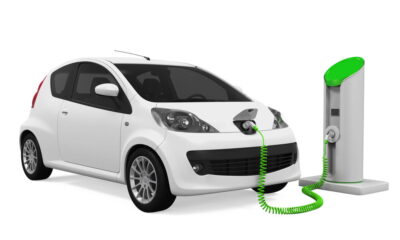

Economy
Driverless electric cars to be tested on British roads in 2015
The government has launched a bid for a share of a £10 million competition for cities to host a driverless cars trial and a review of the UK’s road regulations to see how Britain can implement the new technology.
Driverless cars work through a system of GPS and have no steering wheel or pedals, only a stop and go button.
Google tested a driverless vehicle in May, with UK’s science minister David Willetts later saying that British technology could be cheaper than that of the IT giant, but a number of reforms were needed.
Now the government has announced a £10 million fund to host driverless car trials in three British cities from January 2015.
Business secretary Vince Cable said, “The excellence of our scientists and engineers has established the UK as a pioneer in the development of driverless vehicles through pilot projects.
“Today’s announcement will see driverless cars take to our streets in less than six months, putting us at the forefront of this transformational technology and opening up new opportunities for our economy and society.”
Transport minister Claire Perry added, “Driverless cars have huge potential to transform the UK’s transport network – they could improve safety, reduce congestion and lower emissions, particularly CO2.
“We are determined to ensure driverless cars can fulfil this potential which is why we are actively reviewing regulatory obstacles to create the right framework for trialling these vehicles on British roads.”
A review of road rules, such as the Highway Code, has also been announced to ensure the new technology can be implemented. The government will look at both cars with a qualified driver who can take over control of the driverless car and fully autonomous vehicles where there is no driver.
However, there are fears that drivers would be reluctant to embrace the new transport.
Edmund King, president of motoring company AA, commented, “Today’s announcement takes us closer to seeing fully autonomous vehicles on our roads but it will take some time for them to become commonplace.
“Many drivers are still resistant to change as 65% enjoy driving too much to ever want the vehicle to take over from them.
“Cars have become more automated. However, there needs to be a big leap of faith by drivers from embracing assistance systems to accepting the fully automated car.”
Photo: Tony Hall via flickr
Further reading:
British driverless technology can be cheaper than Google’s, says science minister
Google takes to the road with prototype of driverless electric car
The market challenges facing electric motorcycles
Hyundai looks to sustainable transport with Intrado hydrogen car


 Environment12 months ago
Environment12 months agoAre Polymer Banknotes: an Eco-Friendly Trend or a Groundswell?

 Features11 months ago
Features11 months agoEco-Friendly Cryptocurrencies: Sustainable Investment Choices

 Features12 months ago
Features12 months agoEco-Friendly Crypto Traders Must Find the Right Exchange

 Energy11 months ago
Energy11 months agoThe Growing Role of Solar Panels in Ireland’s Energy Future





























